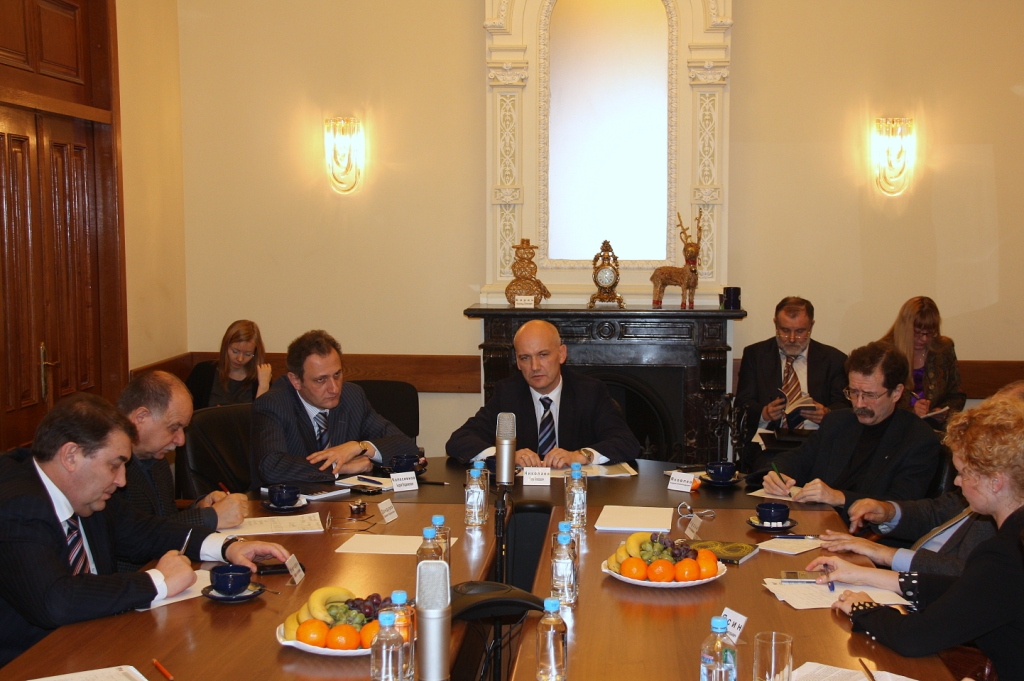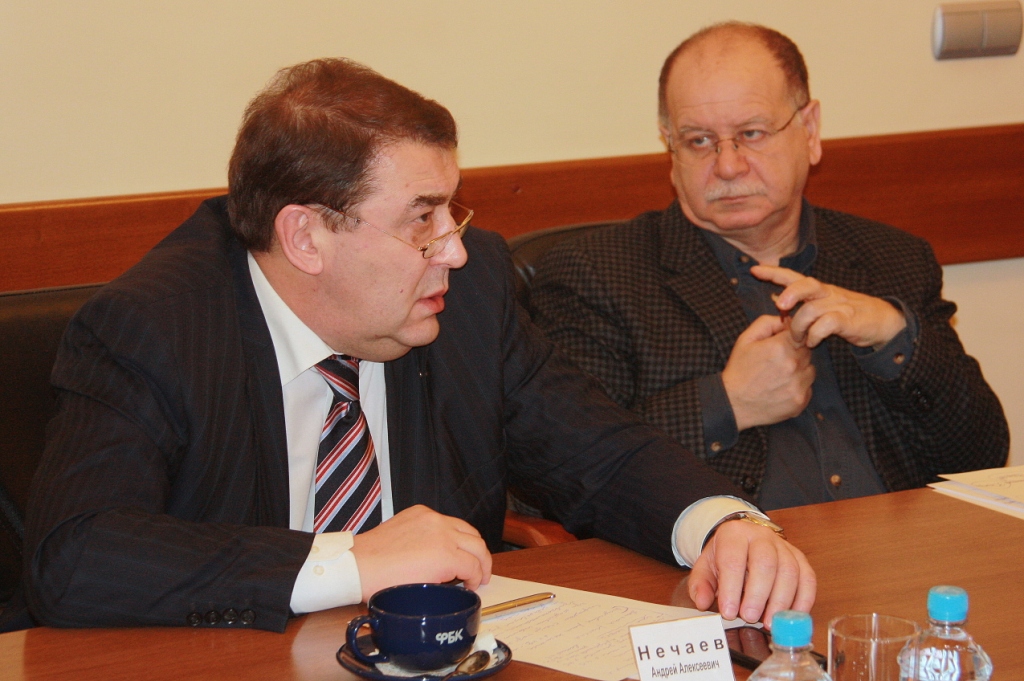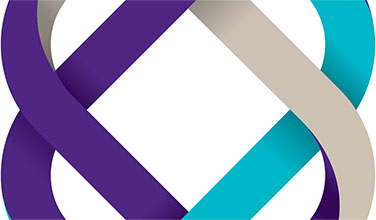“2012: thing edge of the wedge”, experts of FBK Economic Club envisage future
On December 14, 2011 a meeting of FBK Economic club “2012: thing edge of the wedge” was held in Moscow. There the experts announced their forecasts regarding the risks and opportunities the year to come will give the economy.
Director of FBK Strategic Analysis Department, Igor Nikolaev believes that the world is inevitably sinking into the “second wave” of crisis. “The difference of the current situation from what was three years ago is that if then we had a fast plummet and fast retrieve, today it will be slow sinking and after that lengthy and hard diseased state”, the expert believes. In his opinion, “Russian specifics” in this situation is budget with wrong emphasis and increasing taxes on business, which prevent recovery of economy. In the recent weeks political risks also added up: “ after elections 7-8% decline was observed at the stock market, while other indices kept steady or declined just slightly”. According to Mr. Nikolaev, political factor also explains incredible capital outflow – up to 100 billion USD this year. According to FBK forecast in 2012, instead of increasing, GDP will decrease by 1-2%, budget deficit is to be about 4-5%, equity investments can be from minus 2% up to 0, industrial production will decrease by 3-4 %, while inflation will remain at about 8-9%. At the same time, according to Igor Nikolaev, it should get much worse after the elections – in the second half of 2012.

Andrei Nechaev, President of Russian Financial Corporation Bank agrees that today’s situation greatly reminds 2008: here comes again banks liquidity compression, increasing debts before the Central Bank and increasing deposit rates that will cause increasing of credit interests as well. What differs from the situation three years ago is still high oil prices and no push towards downfall such as collapse of any major credit institution. “Stress tests and reaction of rating agencies shows that such risks do exist. So, quite possibly in the nearest future the state will have to interfere again and to save banks”, the expert believes.
Pro-rector of National Research University Higher School of Economics, Andrei Yakovlev as the current distinctive feature named high rate of uncertainty. “After a long period of growing we have reached the stage when the system is changing, however it is not quite clear, in what direction”, he emphasized. The guarantee for growing, according to the economist is building the right system of incentives. “The situation of uncertainty also implies opportunities which could be implemented by our competitors China and Brazil. We should learn from their experience”, Yakovlev recommends.

Alexander Auzan, Chairman of Applied Institutional Economics Chamber of Economic Department at Lomonosov Moscow State University believes that in 00’s the model switched. A non scripta public agreement had existed before the crisis “political rights in exchange for stability”: people gave away their political rights in exchange for increase of real income at the rate of 10-12 % a year. “In the years of crisis we did not notice how we became a social state: anti-crisis measures were implemented through increasing pensions and payments to state employees. So we passed the crises smoothly, however we undertook uncallable liabilities”, Auzan notes. According to him, the main issue is the state credibility crisis. Among the top-priority measures for recovering that credibility and overcoming negative economic situation the economist named solving the tax system issue: “In our country people do not know what they pay taxes for. At the same time tax burden in Russia is not just 13% of income tax. Only transport and property tax are on the very surface. While there are also import duties, VAT, excise duties…Including indirect taxes, the tax burden is at the rate of 40% from income, which is quite comparable with the average European tax burden”, the expert emphasizes.
Daniil Dondurey, Chief Editor of “Cinema Art” magazine noted that nobody in Russia pays attention to “the most important production – the one to do with humans”. “All that was mentioned here – expectations, distrust, risks – all that is psychology, while psychology is culture. This is why all that is inseparably interconnected and very important”, the expert concluded.
